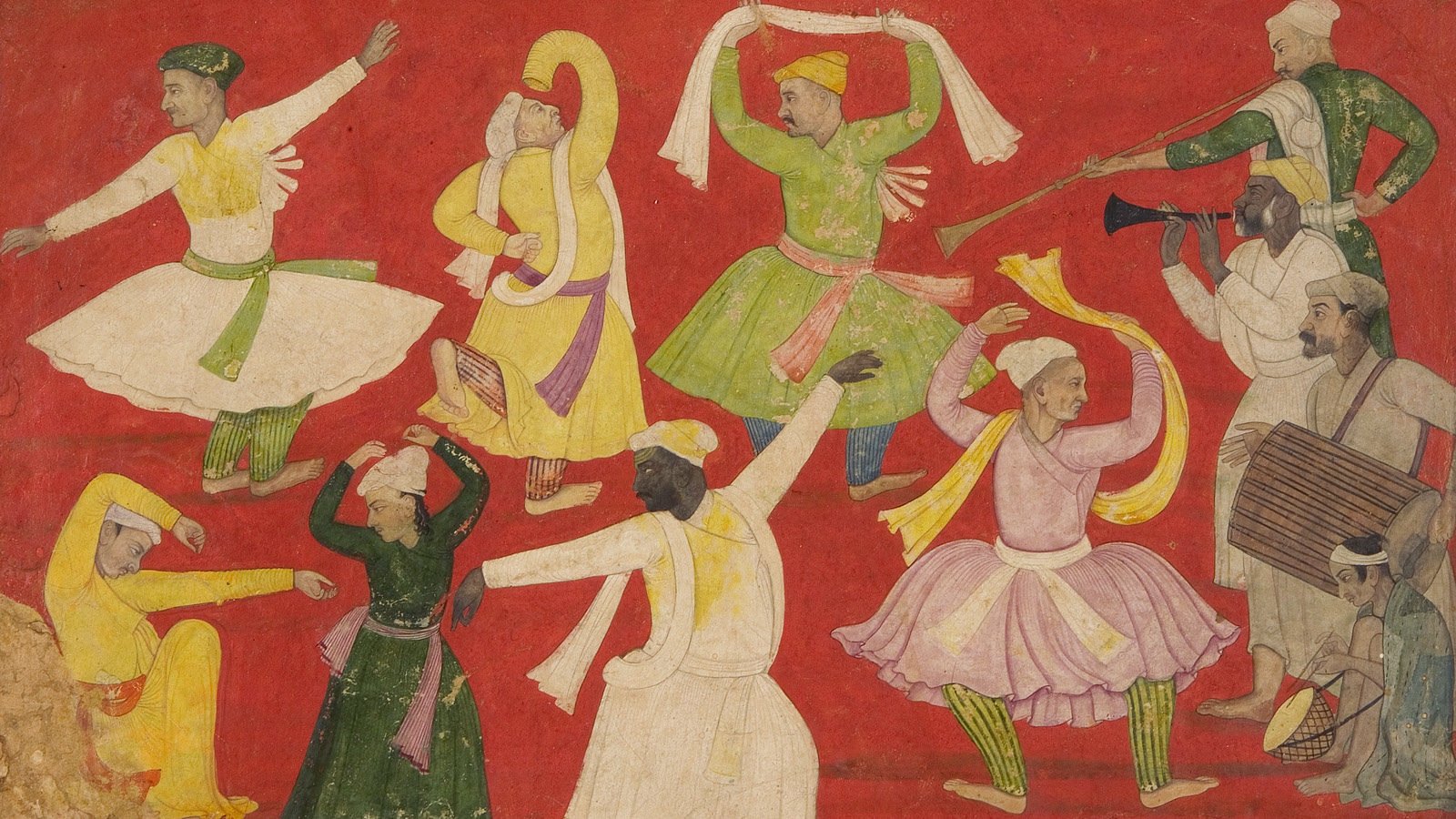
Beyond Bollywood: 2000 Years of Dance in Art
Dance is everywhere in the arts of the Indian cultural sphere: from the sacred dance of a god bringing the world into being to the elaborate choreography of modern Bollywood, every move has meaning. From March 31 through July 10, 2023, the Asian Art Museum presents Beyond Bollywood: 2000 Years of Dance in Art, inviting all to discover the power of dance in the visual arts of India, Southeast Asia, and the Himalayas.

Investigation and Restoration of Cultural Relics at the National Palace Museum
The National Palace Museum collection includes nearly 700,000 priceless cultural artifacts. Deeply aware of the importance of preservation and conservation, the Museum has established the only independent department of conservation in Taiwan. It includes four divisions for the conservation of calligraphy and painting, rare books and historical documents, objects, and textiles, as well as a science laboratory for the preventive preservation and conservation, the research on the history of crafts, and the collection of cultural relics.

Animals in Japanese Art
Zoological imagery has a mysterious appeal. Animals in Japanese Art, on view at the Honolulu Museum of Art (HoMA) March 30–July 23, will showcase a menagerie of paintings and sculptures from the museum’s permanent collection that date to the 15th century.

Pictorial Songs of the Brush: A Guide to Paintings in the National Palace Museum Collection
The history of Chinese painting can be compared to a symphony. The styles and traditions in figure, landscape, and bird-and-flower painting have formed themes that continue to blend to this day into a single piece of music. Painters through the ages have made up this "orchestra," composing and performing many movements and variations within this tradition.

Spotlight on National Treasures
Su Shi (1037-1101), who is widely known as Su Dongpo, was a renowned figure in the fields of literature and calligraphy who lived during the Northern Song dynasty. In the third year of Emperor Shenzong’s Yuanfeng reign period (1080), Su was exiled to Huangzhou, the site of the modern city of Huanggang in Hubei province. During this period, he embarked on an overwater sojourn past an area known as Red Cliff. In the seventh and tenth lunar months of the fifth year of the Yuanfeng reign period (1082), Su penned two pieces of writing recording his trip. The first is known as “Former Ode to the Red Cliff” and the second as “Latter Ode to the Red Cliff.” These two works exerted an enormous influence on poetry, prose, calligraphy, and painting created in the eras that followed. This “Spotlight on National Treasures” exhibition presents a selection of two works of calligraphy—officially certified as National Treasures—written during the Yuan dynasty by Zhao Mengfu (1254-1322) and known collectively as “Album with Both Odes to the Red Cliff in Running Script.” Zhao Mengfu’s life, writings, and art are all discussed in this exhibition, in order to convey a sense of his deep reverence for Su Shi.
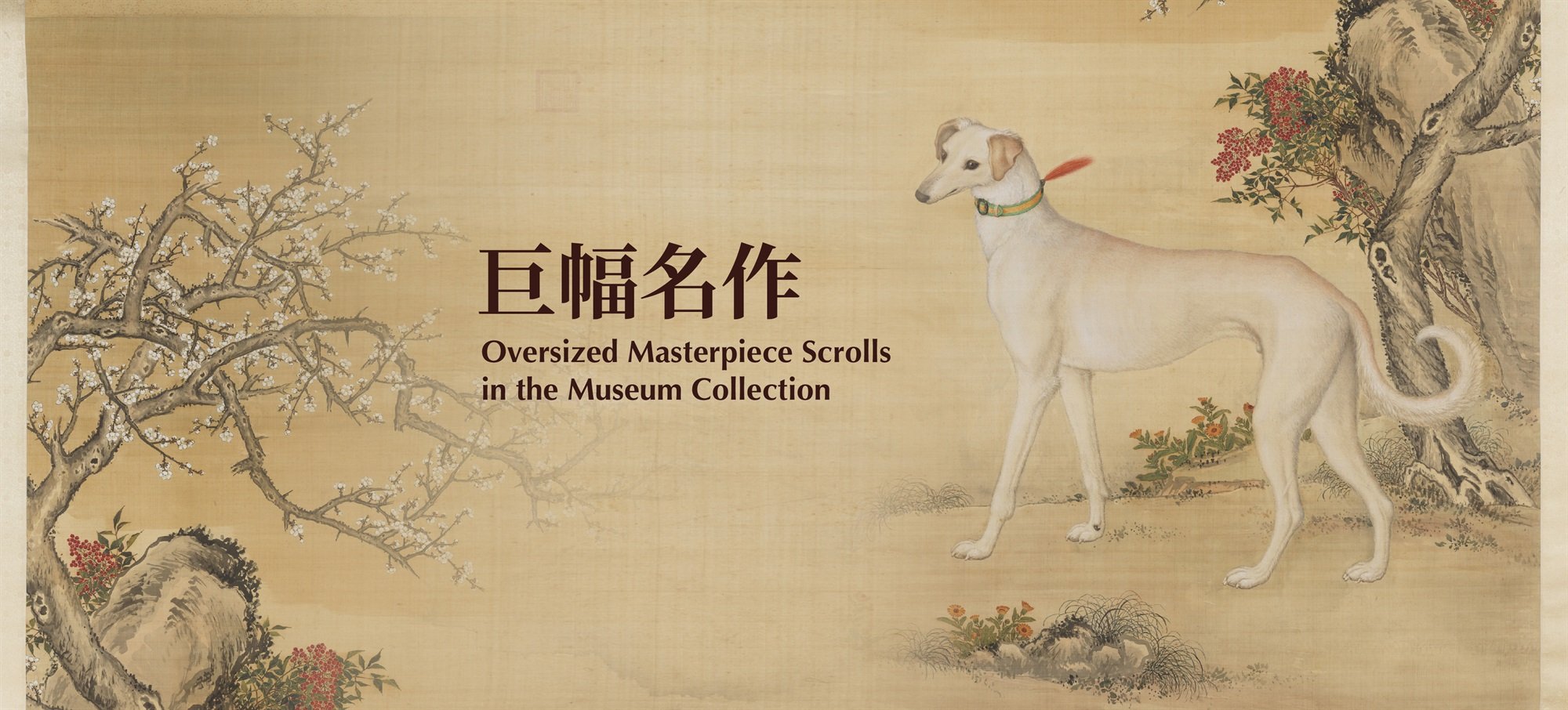
Oversized Masterpiece Scrolls in the Museum Collection
Ten Paintings of Prized Dogs—Frost Flower Hawk Lang Shining (Giuseppe Castiglioni), Qing dynasty
Lang Shining (1688-1766), born Giuseppe Castiglioni, was an Italian who became a Jesuit priest at the age of nineteen. When he was twenty-seven years old he traveled to China, where he offered his services as a painter to the Qing court. He served as a court painter during the reigns of emperors Kangxi, Yongzheng, and Qianlong.
This painting depicts a xiquan (a breed of hunting dog) standing before a white-blossomed plum tree. The painting gets its name because of the dog’s frost colored fur and the way its vigorous posture evokes a hawk in flight. Lang Shining was adept at using Chinese painting tools and media. He combined these with occidental techniques for painting perspective and realistic shading, in order to capture the spirits of his subjects. His works thus feature rich coloration and highly lifelike forms.
Flowers and Plants [Bogu/Assorted Antiques] Painting Chen Zhaofeng, Qing dynasty
Chen Zhaofeng (dates unknown), who had the style name Mengqi, was a painter skilled in the flowers-and-birds genre. In the seventh year of the Guangxu reign period (1881), he was granted a seventh degree cap badge (a symbol of rank). He served in the imperial court or over twenty years, until he retired in old age.
Wisteria, peach blossoms, and other plants are tucked into the large, wide-mouthed porcelain vase on the left. The vase’s neck is decorated with a gemstone and lotus flower design, while its shoulders are festooned with a banana leaf pattern. Its body features cartouche openings filled with ink landscape paintings. Butterfly telescope goldfish are painted swimming among aquatic grasses in the glass fishbowl on the right. Wisteria, treasure vases, and goldfish symbolize auspiciousness, peace, and abundant wealth. This painting would have been hung in a palace during Chinese New Year celebrations.

Painting Animation: Up the River During Qingming
"Up the River During Qingming" is a masterpiece of genre painting, with many replications done over the centuries. This version, completed in 1736, the first year of the Qianlong Emperor's reign, was the collaborative effort of five Qing court artists—Chen Mei, Sun Hu, Jin Kun, Dai Hong, and Cheng Zhidao. Known as the "Qing court version," the hand scroll is richly detailed and faithful to the styles and contents of previous versions. Notable features are bright coloring, mature brushwork, ruled-line architectural representation, and the fine and exact rendering of the figures. Although it departs from the old Song dynasty prototype, it is still an invaluable source of study for Ming and Qing society and customs.

Hokusai Inspiration and Influence
Thanks to the popularity of the instantly recognizable Great Wave—cited everywhere from book covers and Lego sets to anime and emoji—Katsushika Hokusai (1760–1849) has become one of the most famous and influential artists in the world.

The Art of Literacy in Early Modern Japan
Reading and writing were popular pastimes in early modern Japan. From the 1600s to the 1800s, the printing industry developed rapidly, making printed materials available to readers in urban and rural areas alike.

The Expressive Significance of Brush and Ink : A Guided Journey Through the History of Chinese Calligraphy
To meet the need for recording information and ideas, unique forms of calligraphy (the art of writing) have been part of the Chinese cultural tradition through the ages. Naturally finding applications in daily life, calligraphy still serves as a continuous link between the past and the present. The development of calligraphy, long a subject of interest in Chinese culture, is the theme of this exhibit, which presents to the public selections from the National Palace Museum collection arranged in chronological order for a general overview.

Flowers on a River: The Art of Chinese Flower-and-Bird Painting, 1368-1911
The largest survey of its kind outside of China and the first in the U.S., Flowers on a River: The Art of Chinese Flower-and-Bird Painting, 1368-1911, Masterworks from Tianjin Museum and Changzhou Museum will showcase masterpieces of Chinese painting across five centuries. The exhibition will be on view through June 25, 2023. The exhibition marks the first showing of masterpieces traveling from China to the U.S. since the onset of the pandemic.

Art Basel Hong Kong 2023
Our Hong Kong fair features premier galleries from Asia and beyond. It provides an in-depth overview of Asia-Pacific's astonishing diversity, as well as global artistic perspectives through Modern and contemporary works.

Art Central 2023
We are delighted to announce that Art Central will return in 2023, commencing with a VIP Preview on Tuesday, 21 March and continuing through Saturday, 25 March. The fair will be held in partnership with UOB at the Hong Kong Convention and Exhibition Centre, running concurrently with Art Basel’s Hong Kong edition.
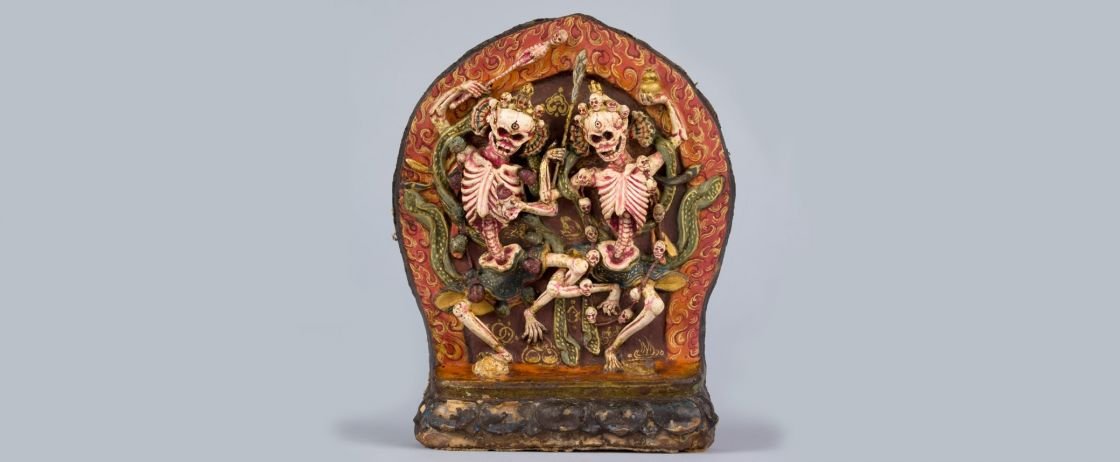
Death Is Not the End
Death Is Not the End is a cross-cultural exhibition that explores notions of death and afterlife through the art of Tibetan Buddhism and Christianity. During a time of great global turmoil, loss, and uncertainty, the exhibition invites contemplation of the universal human condition of impermanence and the desire to continue to exist.

Asia Week New York 2023
Asia Week New York is an annual ten-day celebration of Asian art throughout metropolitan New York, with non-stop exhibitions, auctions and special events presented by leading international Asian art specialists, major auction houses, and world-renowned museums and cultural institutions.
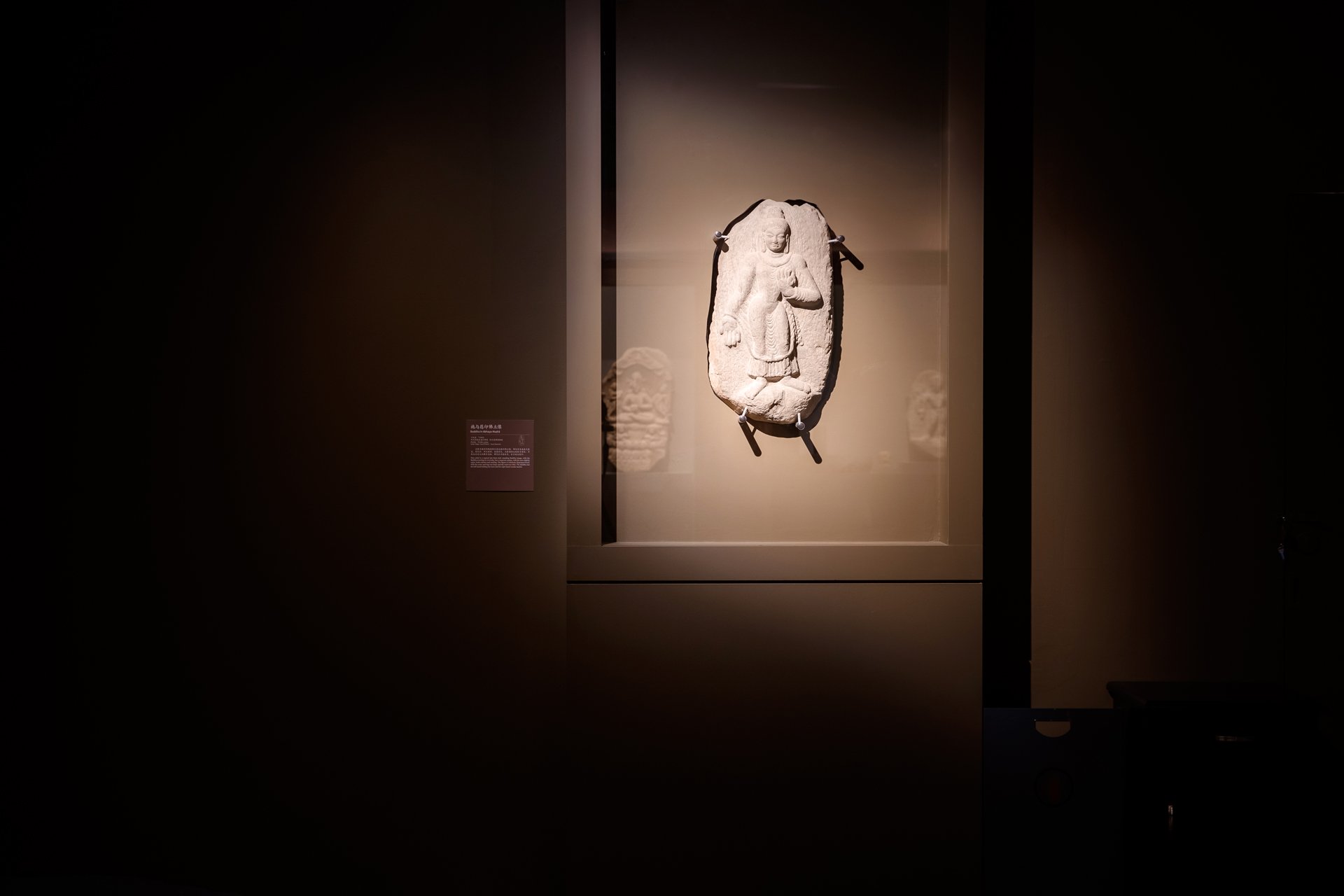
Gandhara Heritage along the Silk Road: A Pakistan-China Joint Exhibition
The exhibition features a total of 203 artifacts, including 173 items from Pakistan and 30 from the Palace Museum. The Pakistani artifacts are from seven museums, namely the National Museum of Pakistan, Taxila Museum, Peshawar Museum, Islamabad Museum, Dir Museum, Swat Museum, and Hund Museum. These artifacts, dating back to the period between the 2nd century BCE and the 10th century CE, were mostly unearthed through archaeological excavations.

Splendors of the Biblioteca Apostolica Vaticana and Rare Books from the Ming and Qing Imperial Libraries
The Bibliotheca Apostolica Vaticana is the library of the popes. Inaugurated in the mid-15th century, it was conceived as an institution “for the common convenience of learned men (pro communi doctorum vivorum commodo),” one “of all manuscripts in both Latin and Greek that is worthy of the dignity of the Pope and the Apostolic See (liborum omnium tum latinorum tum grecorum bibliotecam condecentem pontificis et sedis apostolicae dignitati).”
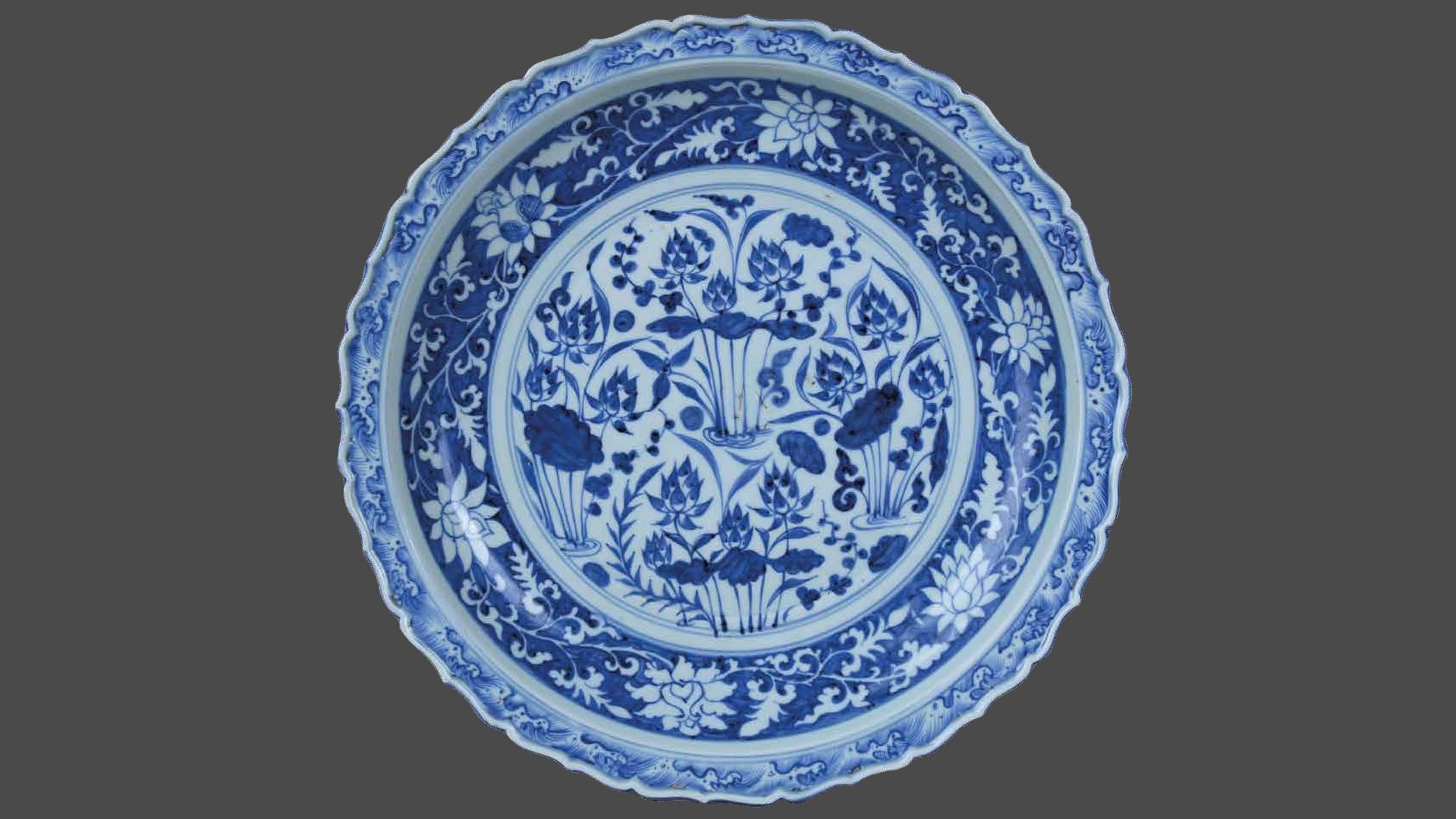
Potted and Painted: The Production and Technical Development of Underglaze Blue Porcelain in China
The University Museum and Art Gallery of the University of Hong Kong is honoured to present Potted and Painted: The Production and Technical Development of Underglaze Blue Porcelain in China. For over a millennium, Chinese potters have produced highly sought-after objects decorated in blue and white.

Eternal Offerings: Chinese Ritual Bronzes
Bronze vessels held great ritual significance in ancient China. Used to make offerings to heavenly and ancestral spirits, these exquisite objects were also symbols of power. Mia’s Chinese art curator Liu Yang and world-renowned art director and film designer Tim Yip (Crouching Tiger, Hidden Dragon) will create an experiential exhibition that engages the senses. Featuring some 150 Chinese bronze objects from Mia’s collection, “Eternal Offerings” offers an immersive experience designed to evoke the mystery of heavenly and ancestral worship. Each gallery will embody a facet of the rituals enacted to honor the divinities, from the solemnity of the temple, to the intoxication of lavish banquets.

Art Dubai
Art Dubai is the Middle East’s leading international art fair, taking place every March in Dubai, UAE.
Over the past 16 years, Art Dubai has cemented its role in being a major catalyst in the local, regional and international conversations on art from the Middle East and surrounding region (MENASA – Middle East, North Africa & South Asia), and putting art from these territories onto the global map.
